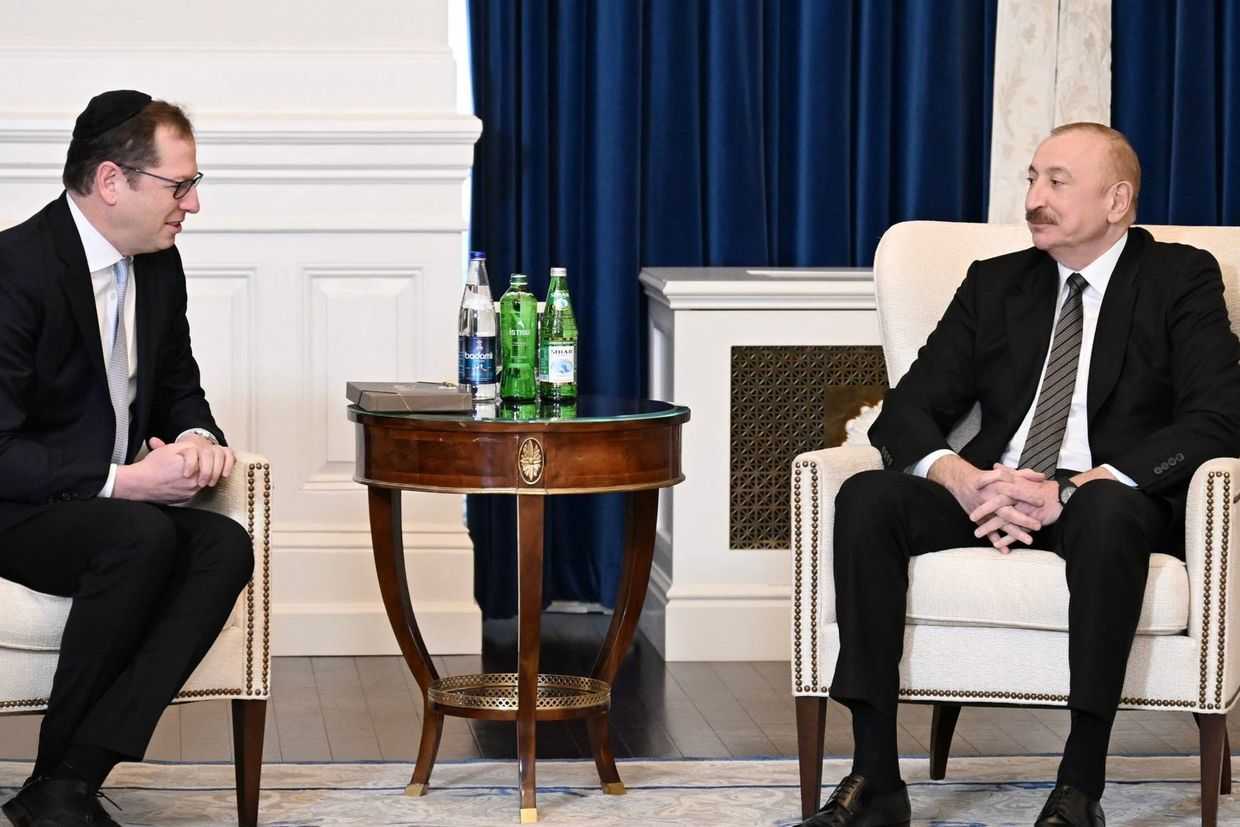
Dozens of women’s rights activists in Azerbaijan marched through the central street of Baku on Sunday to mark International Women’s Day. The march went ahead despite numerous interventions by the police and others.
Dozens of the protesters were attacked and detained by police during the march, with several injured.
Activists started their protest on Sunday afternoon chanting: ‘Let women unite, there is no silence, there is rebellion’ and ‘Don’t be afraid of the streets, don’t choke freedom’.
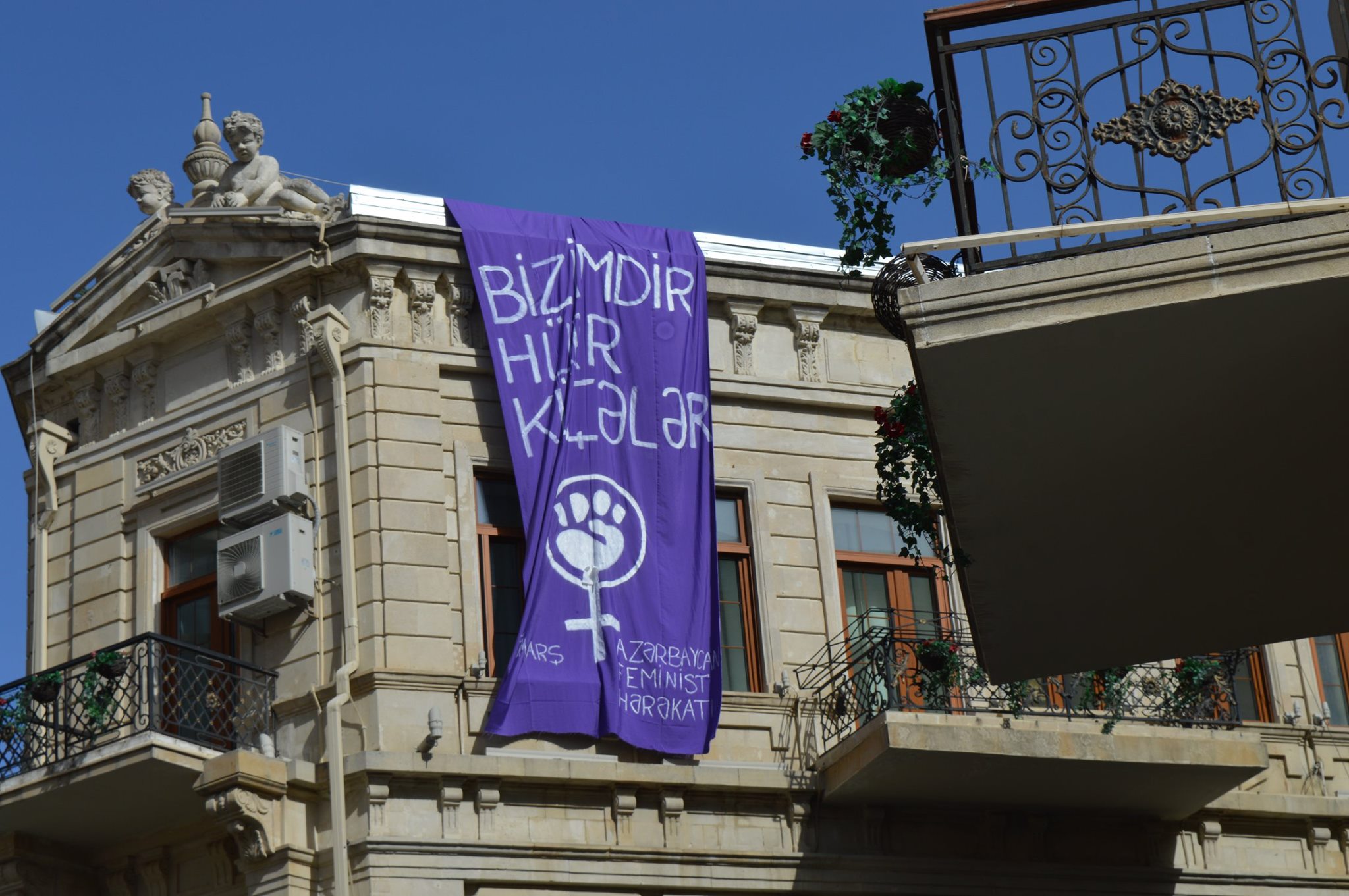
Shortly after the march began, dozens of police officers surrounded protesters attempting to block their path. Despite numerous police interventions, protesters succeeding in marching until the central Sahil Metro Station.
One of the organisers, Aytaj Aghazade, told OC Media that as well as uniformed officers there were many police officers in civilian clothes at the march.
She added that there were also female provocateurs — street sweepers and vendors — who were given eggs, tomatoes, and food which they threw at participants.
Despite the interventions, Gulnara Mehdiyeva, one of the organisers, said that they consider that march ‘was successfully held’.
Video: Meydan TV
The Baku Administration had earlier denied a request to hold the march in the city centre and offered they hold the demonstration in the Lokbatan township, on the outskirts of Baku.
The organisers rejected this proposal and insisted they hold the march in the city centre.
Police violence and detentions
During several attempts to disperse the crowd, police officers several times used violence against protesters, injuring several of them.
Fifteen-year-old activist Sanay Yaghmur told OC Media that all the participants suffered from the police’ actions.
Police using violence attacking participants of the International Women’s Day March. Video: Portaghal Media.
Protest organiser Aytaj Aghazade said that around a dozen people were detained, mostly men, who were brought by bus to the outskirts of Baku.
Ahmad Ismayilov, another participant, told OC Media that a police officer hit him with a radio set ‘three-four times’ on the back of his head.
‘I thought I was sweating a lot, but when I wiped the back of my head I noticed that there was blood […] Soon I was called over by another policeman who told me to sit in their car and they would take me to an ambulance.’
‘But they did not. They brought me to the #39 Police Station and kept me there for two hours. Then they seated me and other participants in two buses and brought us to Hajigabul [on the outskirts of Baku] and released me there. No medical care was provided to me’, he said.
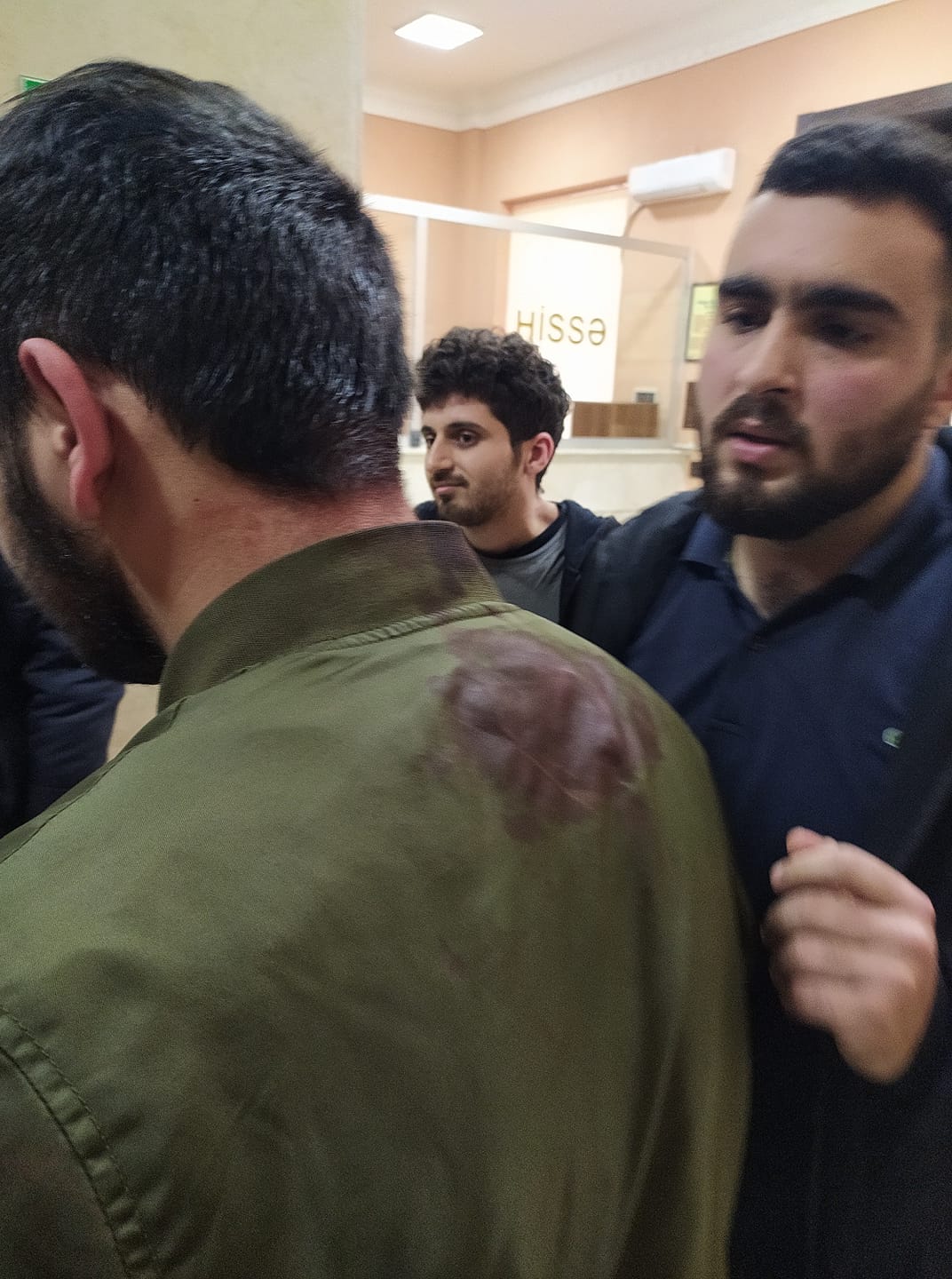
Aghazade said that police continued using violence after the march, as participants were pushed inside the Sahil Metro Station and outside a police station where some of the detainees were being held.
According to her, police insulted the female protesters, slapped them in the face and head and kicked them.
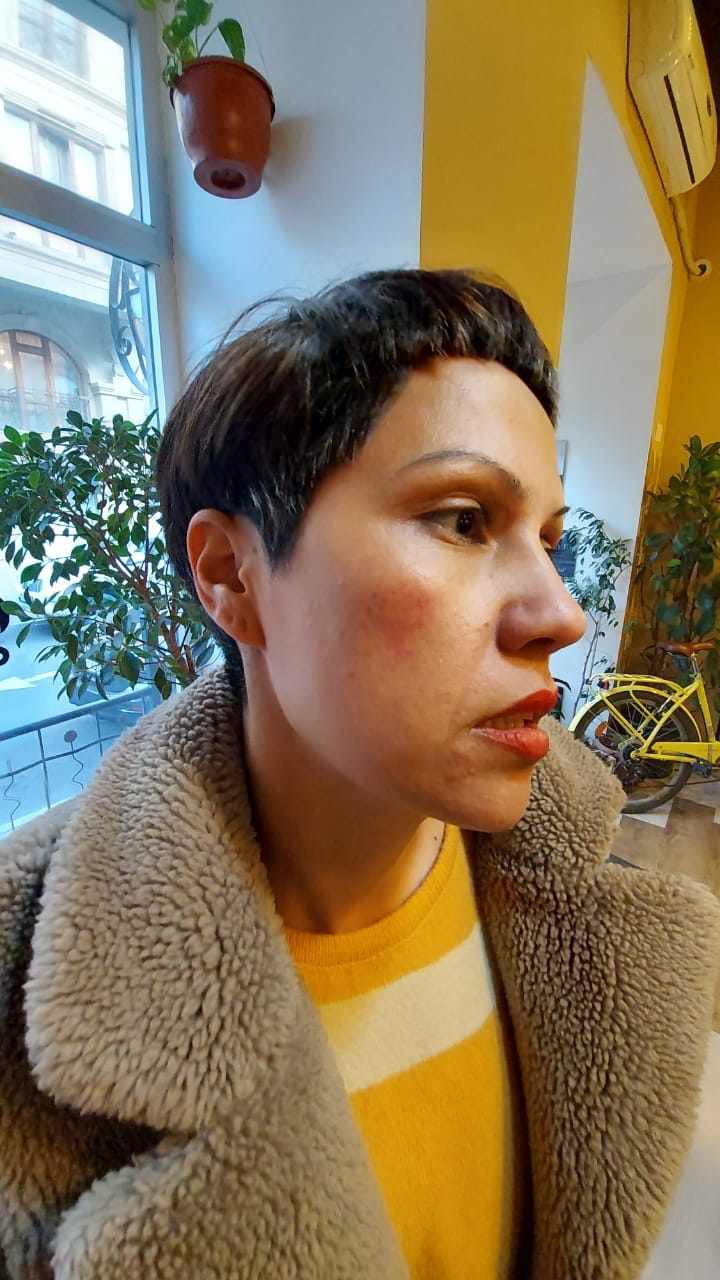
She said that in the end, the police ordered the organisers to go home, surveilling them until they reached their homes.
According to Aghazade, many participants received phone calls from the police several days before the march asking them to attend police stations. She said they did not follow this request with some temporarily staying elsewhere.
Gulnara Mehdiyeva told OC Media that her Telegram account was hacked five times before the march.
Journalist and activist Nurlan Gahramanli told OC Media that police also used violence against journalists covering the event. ‘They pulled us, grabbed our cameras, kicked us. They broke the mobile phone of one female journalist’, he said.
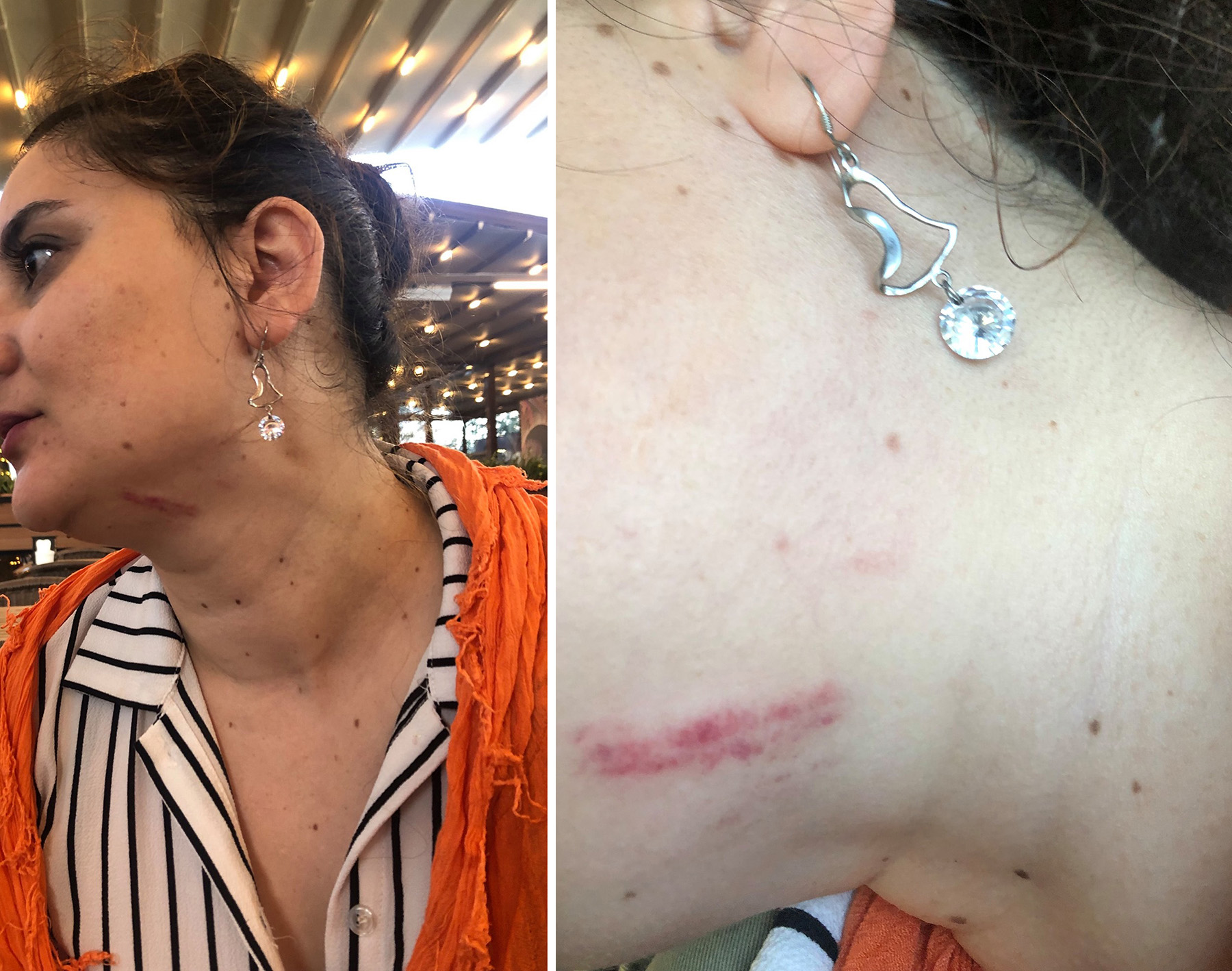
Ehsan Zahidov, chief spokesperson for the Ministry of Internal Affairs, told news agency Trend that an ‘illegal action’ was dispersed with participants removed from the scene.
According to him, people who were shopping and resting at Fountain Square on a public holiday ‘also protested against the participants of the rally’.
‘Several people were detained during the dispersal of the rally and were released after explanatory remarks’. He added that there were no women among the detainees.






